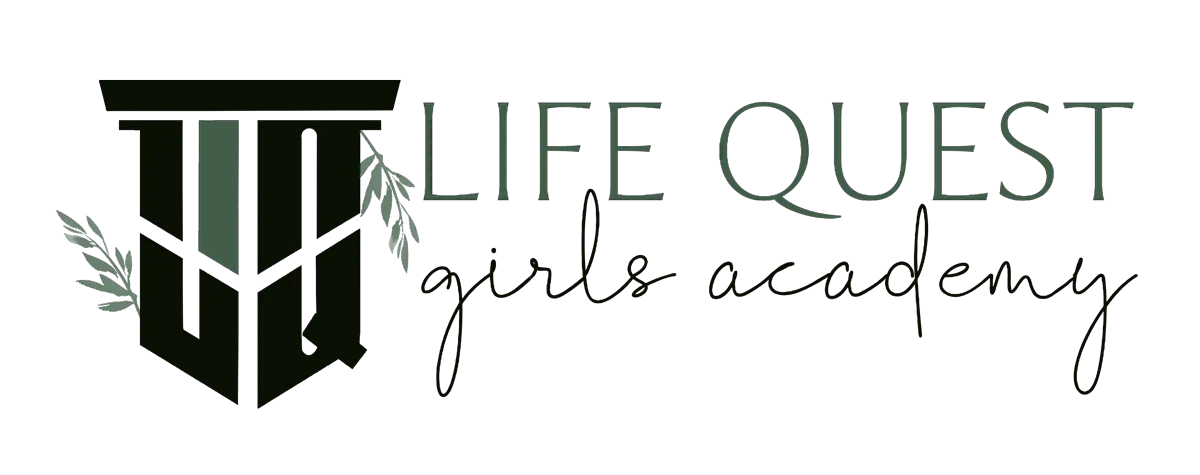Let's help you determine which type of school is best for your daughter.
Articles & Resources

Transitioning to Life Quest Girls Academy: A Safe Haven for Girls with Reactive Attachment Disorder
When your daughter struggles to form meaningful connections with others and exhibits behaviors like emotional outbursts or withdrawal, finding the right environment for her to thrive can be daunting. Girls with Reactive Attachment Disorder (RAD) often face unique challenges in social and academic settings. Life Quest Girls Academy offers a structured, supportive environment where girls with RAD can find stability and growth.
Understanding Reactive Attachment Disorder (RAD)

Reactive Attachment Disorder is a condition that often develops when children do not establish secure bonds with their caregivers during early childhood, frequently due to experiences of trauma, neglect, or instability. Girls with RAD may experience:
Difficulty building trust and relationships
Withdrawal from social interactions
Defiant or aggressive behavior
Challenges expressing empathy
Fear of close relationships or emotional intimacy
Aggression and anger towards the nurturing enemy (Usually the Mother Figure)
These symptoms can become even more complex during adolescence, a time when social belonging and peer interactions are crucial. Life Quest Girls Academy is specifically designed to address the needs of girls with RAD, offering them the stability, structure, and support needed to rebuild their confidence and sense of belonging.
Life Quest Girls Academy: A Safe and Supportive Environment
At Life Quest Girls Academy, we understand the unique struggles that girls with RAD face. Our school provides a safe space where they can grow emotionally, socially, and academically. Here’s how Life Quest helps girls with RAD find success:
Respite From the Home Environment for Your Daughter, for You, and for Your Family
Girls with RAD are often living in a home environment with their flight or flight response fully engaged. This does not allow their brains to calm down enough to reason, use logical thinking, and/or to make choices that are in their best interest. Safety is usually a concern for students who live with RAD as they put themselves in compromising situations in an effort to seek unhealthy relationships instead of being able to cultivate and build healthy relationships with the family around them. They often become angry and aggressive as a response to their fight or flight. They also tend to rely on lies and manipulation and seek to gain any kind of control in any way they can get it. This becomes exhausting for your daughter with RAD, for you, and for siblings.
By the time a family is looking at out of home placement for their daughter with RAD, they most likely are in a place of crisis where all other options have been exhausted, they are depleted emotionally, financially, sometimes being judged by family and friends, and feel like there are no options to save their family.
Life Quest Girls Academy has solutions. We can help you and your family. We offer respite from the home environment where your daughter can come, allow her brain to calm as she is away from the pressures to attach to the family, refocus on school, life skills, and grow and develop in a structured and safe environment. Life Quest Girls Academy allows students and families to reach out and reconnect at a pace that is safe and comfortable for families and for their daughters with RAD.
Structured Social and Emotional Development

Life Quest integrates social and emotional development into everyday life. Girls with RAD often need extra guidance in learning how to manage emotions, communicate effectively, and engage in positive social interactions. By emphasizing Social and Emotional Learning (SEL), Life Quest helps students develop critical life skills, including:
Self-awareness
Problem-solving
Managing emotions
Effective communication
These skills empower girls to navigate social situations more confidently and establish healthier relationships with peers and family.
Academic Structure and Support

In addition to social and emotional growth, Life Quest places a strong emphasis on academic achievement. Girls with RAD often face disruptions in their education due to behavioral or emotional struggles. Our small class sizes and structured curriculum are designed to help students stay focused and succeed academically. Our educational platform provides individualized attention, helping each student reach their potential and overcome challenges.
Our goal is to equip students with the skills they need to excel in both their academic and personal lives. Whether your daughter is behind academically or simply needs a more structured learning environment, Life Quest provides the resources necessary to help her thrive.
Developing Life Skills for the Future
At Life Quest, we prepare girls not just for academic success, but for life beyond school. Students are encouraged to participate in activities that promote independence, teamwork, and responsibility. Whether it’s through leadership opportunities, community involvement, or extracurricular activities, our goal is to equip girls with the life skills they’ll need for adulthood.
A New Beginning for Girls with RAD

Life Quest Girls Academy offers a stable and supportive environment where girls with Reactive Attachment Disorder can begin to rebuild their confidence, form healthy relationships, and succeed academically. Transitioning to a new environment can feel overwhelming, but at Life Quest, students find the structure, community, and opportunities they need to grow and thrive.
For parents seeking a safe place where their daughter can flourish, Life Quest Girls Academy is here to help her on her journey toward a brighter future.
